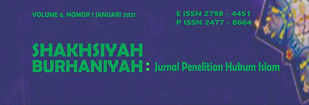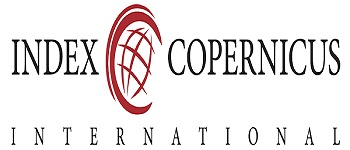AHKAM QURAN EXEGESIS ON FIQH'S HOUSEHOLD EXPENSES;
CAREER WOMEN-CAREER HUSBANDS; WHO IS THE OBLIGATORY PAYEE ?
DOI:
https://doi.org/10.33752/sbjphi.v7i2.3957Abstract
This article is the result of qualitative literature research. The purpose of this research is to explore the establishment of the concept of family maintenance in Islam. The scholarly debate boils down to two categories. First, the salaf scholars mostly agree that family maintenance is in the hands of the husband; second, the opinion of the muta'akhkhirin scholars that maintenance is not absolutely on the husband's shoulders but is flexible, either the husband or the wife depending on the circumstances. This article situates the legal reasoning of both opinions by considering the theory of tafsir ahkam as a tool. The conclusion is nafkah in usul perspective is the obligation of the husband with all the rights and obligations attached to nafkah, but the obligation can change to the wife with the consequent rights and obligations attached to nafkah. Data in this research ara the interpretation of the verses of the Qur'an taken from several books of Quranic interpretation.
Downloads
References
Daftar Pustaka
Al Amin, Habibi. "Guardians Concept in Qur'an Perspective." Shakhsiyah Burhaniyah: Jurnal Penelitian Hukum Islam 6.1 (2021): 95-114.
Al Amin, Habibi. "Penciptaan Adam; Mendialogkan TafsiR Marah Labid dengan Teori Keadilan Gender." An-Nuha: Jurnal Kajian Islam, Pendidikan, Budaya Dan Sosial 1.1 (2014): 17-44.
Al Amin, Habibi. "Tafsir Sufi Lata’ if al-Isyarat." SUHUF 9.1 (2016): 59-77.
Al-Ghazali, Imam Abi Hamid Muhammad bin Muhammad, 1983, Al-Mustas}fa min ‘Ilm Al-Ushul Juz I, Beirut: Dar Al-Kutub Al-Ilmiyyah.
Bakar, Imam Taiqiy al-Din Abi, 2005, Kifayah al-Akhyar, Beirut, Lebanon: Dar al-Kutub al-Ilmiyyah.
Fahru, Ahmad, 2015, “‘Iddah dan Ih}da>d Wanita Karier (Perspektif Hukum Islam dan Hukum Positif)â€, Skripsi, Fakultas Syari’ah, Universitas Islam Negeri Syarif Hidayatullah Jakarta.
Ibn al-Kat}i>r, Abu> al-Fida>ʾ Isma>ʿi>l ibn ʿUmar, t.th, Tafsir Ibnu Katsir, Jeddah : Dar Taybah.
Ibnu Ahmad Dahri, 1994, Peran Ganda Wanita Modern, cet. V, Jakarta: Pustaka al-Kautsar.
Inayah, Arofatul, 2006, “Problematika Pernikahan Wanita Karier dan Pengaruh terhadap Pembentukan Keluarga Sakinahâ€, Skripsi, Fakultas Syari’ah dan Hukum, Universitas Islam Negeri Syarif Hidayatullah Jakarta.
Muhammad, Husein, 2002, Fiqh Perempuan (Refleksi Kiai atas Wacana Agama Dan Gender), cet. II, Yogyakarta: LKiS.
Muslim bin al-Hajjaj, t.th, Al-Jami’ Al-Sahih, Ed : Muhammad Fuad Abdul Baqi, Beirut: Dar Ihya’ At-Turats al-Arabiy.
Nasution, Adnan Buyung, 2015, “Problematika Ihdad Wanita Karier Menurut Hukum Islamâ€, Tesis, Fakultas Syari’ah, Universitas Islam Negeri Sumatra Utara Medan.
Nursidin, Ghilman, 2012 Konstruksi Pemikiran Maqashid Shari’ah Imam Al-Haramain Al-Juwaini (Kajian Sosio-Historis), thesis tidak diterbitkan, Semarang : Sinopsis Tesis Program Pascasarjana Institut Agama Islam Negeri (IAIN) Walisongo Semarang.
Qudamah, 1968, Ibnu Al-Mughni Libni Qudamah, juz VIII, Kairo: Maktabah Kairo.
Rahman, Fazlur, 2008, Approaches to Islam in Religious Studies, Review Essay, dalam Rusli (ed.), “Pendekatan Fenomenologi dalam Studi Agama (Konsep, Kritik dan Aplikasi)â€, Jurnal Islamica, Vol. 2, Maret 2008.
Rahmat, Pupu Saeful “Penelitian Qualitatifâ€, Jurnal Equilibrium, Vol. 5 No. 9, januari-Juni.
Rusyd, Ibnu, t. th., Bidayah al-Mujtahid juz 2, Surabaya: Al Hidayah.
Sabiq, Sayyid, 1987, Fiqih Sunnah, Cet I, Bandung: PT Alma’arif.
Susilo, Edi, 2016, “‘Iddah Dan Ihdad Bagi Wanita Karierâ€, Al-Hukama The Indonesian Journal of Islamic Family Law Volume 06, Nomor 02, Desember 2016.
Uwaidah, Muhamad Kamil, 1998, Al Jami’ fi Fiqh An-Nisa’, Fiqh Wanita, cet. I, Penerjemah M. Abdul Ghofar, E.M, Jakarta: Pustaka al-Kautsar.
Widyastuti, Endang, 2014, Ketakutan Sukses Pada Wanita Karir Ditinjau Dari Konflik Peran Ganda, sebuah artikel di Universitas Setia Budi dan Universitas Gadjah Mada.
Zahra, Muhammad Abu, t.th, Al-Ahwal al-Syakhsyiyah, Beirut: Dar al-Fikr.
Downloads
Published
How to Cite
Issue
Section
License
Copyright (c) 2022 Habibi Al Amin

This work is licensed under a Creative Commons Attribution-ShareAlike 4.0 International License.

















